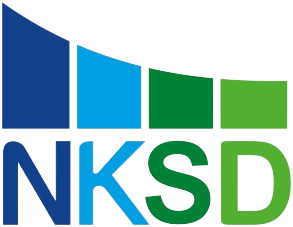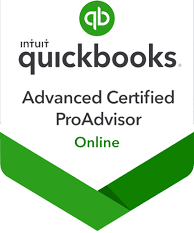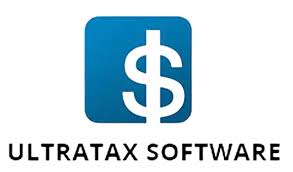A Few Words
Real Estate Accounting
REAL ESTATE ACCOUNTING
The real estate industry encompasses a wide spectrum of professions that rely on the expertise of certified public accountant (CPA) firms specializing in real estate transactions. Real estate CPAs provide the complex financial services that keep your business flowing, help you maximize your profits at every turn and supply you with the means to meet all your financial obligations.
A top accounting firm in NYC, our firm provides extensive, thorough real estate accounting services for everyone who plays a role in the industry, including:
1. Investors
2. Developers
3. Property management companies
4. General contractors
5. Construction Companies
6. Realtors
7. Inspectors
8. Appraisers
9. Marketing firms that specialize in real estate
10. Architects
An expert CPA for commercial real estate provides an extensive array of services designed with your specific needs, including:
- Self-employment accounting. As a general contractor or individual investor running a sole proprietor or partnership operation, your personal finances are intricately involved in your business transactions. You need a CPA specializing in real estate to ensure you’re protected at all times.
- Forensic accounting. You can protect yourself and your company with a real estate CPA from our firm They’re grounded in the intricacies of forensic accounting, able to root out fraud and provide the due diligence required before an IRS audit, as well as help protect you financially in the case of insurance claims or lawsuits.
- Payroll. Working with subcontractors, tenants, office staff and a slew of other professionals on your projects requires a special kind of knowledge about the complexities and mass payroll challenges you often incur. That’s where our firm shine.
- Cash flow management. With money going in and out during an active construction project, you must rely on your real estate CPA to keep track of the flow. And when you aren’t in an active project, you must still manage cash flow prudently to maintain your company’s financial health.
- Internal controls. By recommending the latest, most effective real estate software and mobile apps, as well as workflow processes and internal management parameters, a CPA specializing in real estate sets you up for continued success.
- Forecasts and budgets. While no one can predict the future, a real estate CPA with extensive experience in the industry sees the general tides before they arrive and steers your decisions to maximize your profits and reduce your risks.
- Retirement and succession planning. The earlier you begin planning for your eventual retirement, whether yours is a family business or not, the better situated you’ll be. Your long-term real estate CPA keeps you informed of steps you need to take and when you need to take them, throughout your career.
REAL ESTATE INVESTMENT ACCOUNTING
Real estate fund accounting is a practice aimed at producing results. A CPA for real estate investors structures your transactions and provides detailed cost analyses of every project you approach. Partner distributions and contributions are meticulously followed so that your interests are always protected.
When you need accounting for the sale of real estate or you’re considering your next big investment opportunity, your CPA specializing in real estate guides you through all the options. Trust your accountant to make suitable and calculated recommendations. Listen to the financial advice you get throughout the year, not just at tax time.
CONSTRUCTION ACCOUNTING SERVICES
How you maintain the flow of your financial resources in a construction business is every bit as critical as monitoring the workflow on each project. In fact, you could make an argument that it’s more important, as money management enables the work schedule to continue apace.
That’s why you have to rely on a construction accountant who:
1. Gets to know your company intimately
2. Understands the fluidity of your industry and how construction accounting varies from accounting for other brick-and-mortar and service industries
3. Keeps up with government regulations that affect everything from team construction payroll and tax withholding laws to construction audits
4. Sets up internal processes to track assets moving in and out of your company to assure profitability
5. Adopts the most up-to-date and appropriate construction software for your needs
6. Stays in close contact with your staff to maintain open and regular communication, which ensures that everyone is on the same page and using best practices
Expect to develop a close relationship that pays off in:
1. Smoother bookkeeping processes
2. Payroll accounting that takes into account your fluid use of subcontractors and your incessant project demands
3. Unique internal controls to maximize your profits on each project with close percentage-of-completion oversight
4. Best practices to allow you to keep more of your profits and take every tax advantage available to you
THE CONSTRUCTION ACCOUNTING PERSPECTIVE
Construction professionals like you thrive in a bustling environment that demands you pay close attention to requests for proposals (RFPs), timelines, project management and completing projects to specs. Your reputation depends on keeping a close eye on the actual building process. When the fast and furious pace requires your complete attention, accounting often takes a backseat.
You’re mobile, moving from project to project while working in new locations regularly. Your business is so different from other service and product-based organizations that you need a construction accountant who understands the wide range of variables involved in your business.
To keep your cost estimates on track, your construction accounting team — backed by the best construction-focused technologies available — monitors hundreds of varying cost categories on a daily basis. Some of these include:
- Travel time
- Material delivery to every specific jobsite
- Equipment and tools owned, leased and moved from site to site
- Real-time tracking at each completion phase
- Clean-up at the end of a project
- Ongoing labor costs that vary from project to project
- Engineering and design overhead
- Fixed office costs and their impact on each project
- Consulting fees
A SEASONED CONSTRUCTION CPA
From the construction accountants at Nareshkumar CPA LLC — you receive the full range of construction accounting services specific to the complex financial matters inherent in the construction industry, including:
1. Analysis of your cash flow and overhead costs for each project
2. Recommendations for best practice accounting methods for you company’s needs
3. Reviews and evaluations of your overall operations
4. Segregation of costs for easier oversight
5. Profit and loss analyses from the RFP to customer billing cycles
6. Tax preparation and planning
7. Recommendations to deal with tax issues as they evolve
8. Audits to ensure the highest bond ratings
9. Team construction payroll oversight
10. Integration of technological solutions to improve workflow and real-time communications
The commitment of your construction accounting team doesn’t stop with the day-to-day operations of your business either. Expect expert consultations for your future and the increased profitability of your company with services such as:
* Strategic planning
* Investment advice
* Regular audits of your operations
* Mergers and acquisitions
* Succession planning
* Internal controls
* Retirement planning
* Cash flow management
VITAL CONSTRUCTION AUDIT SERVICES
Whether you maintain a strict construction audit of each project as it progresses or governmental regulatory authorities request an audit, construction audit firms make sure that each project stays on track, that every aspect of the deal sticks to the terms of the contract and that the project is coming in at or under budget at all times.
Talented and experienced construction auditing companies like our firm conduct thorough audits to:
1. Determine whether project managers are working within the parameters of each job and performing their assigned tasks appropriately
2. Avoid conflict among the many various parties involved in a specific project
3. Maintain fluid, real-time internal controls on the day-to-day operations
4. Keep costs within budget at every step of the job
5. Allocate responsibility for costs as they arise
6. Make sure timelines are met at each stage of construction
7. Review the progress of the project by visiting the site and interviewing personnel
8. Recommend the best time to invoice clients
9. Oversee the budget and expenses
10. Ensure the safety of the site by examining the environment, inspecting equipment and questioning the use of hazardous materials
Project audits are commonplace in the industry, and construction audit firms understand your possible aversion to the subject. But since construction audits are a necessary piece of your business, your construction accountant prepares you for the process. And when outside parties request oversight form third-party construction auditing companies, your construction accountant performs this role professionally.
Audits for which your construction CPA remains close to the job may come from owners, company stakeholders or government agencies. When you’ve engaged a construction accounting firm like our firm. you’ll be prepared, you’ll have answers at your fingertips and you won’t face any scrutiny alone.
CPA Firms Outsourcing to India
CPA in my Area
Get in Contact
Impressed by our services? Place your trust in us to deliver excellence. Allow us to manage your accounting and taxation requirements with the utmost professionalism beginning today
Impressed by our services? Place your trust in us to deliver excellence. Allow us to manage your accounting and taxation requirements with the utmost professionalism beginning today
Clients
Our Clients










Free Estimation
Request A Quote














